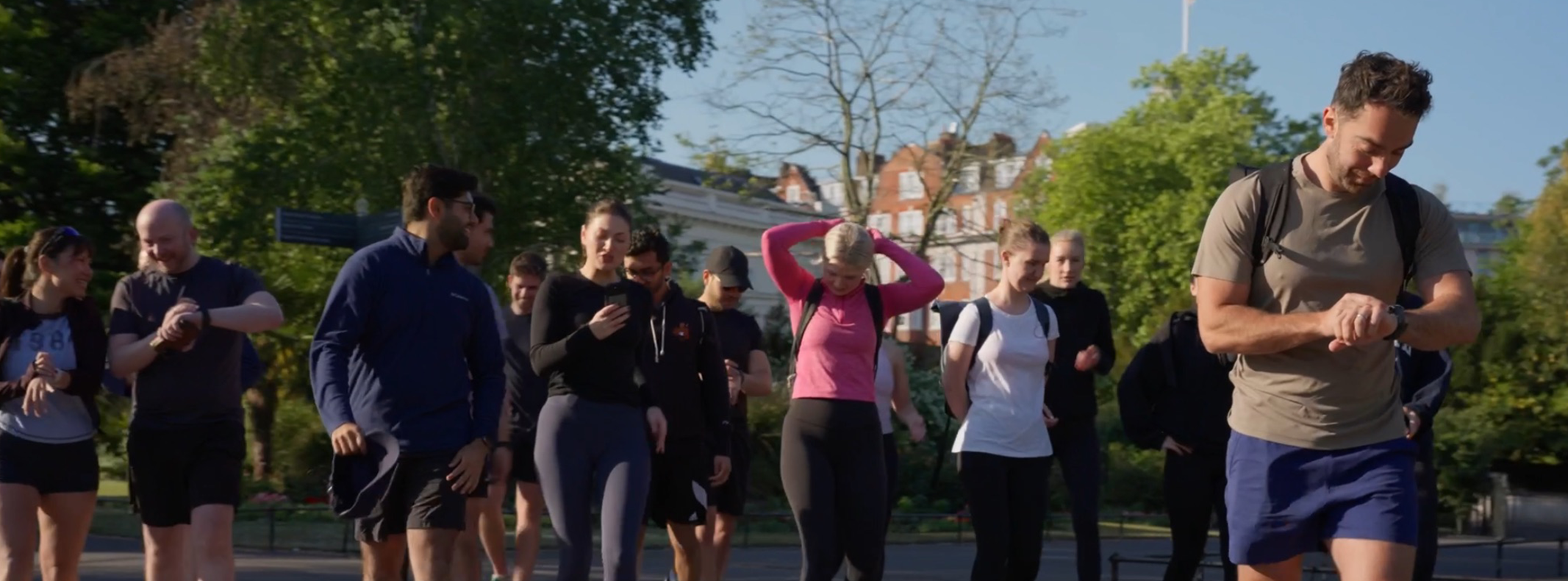Moving mental health from ‘problem’ to reality.
I am so grateful that as a society we had already started the discussion about mental health well before the pandemic took hold. It meant we had resources to draw upon to help us make it through the first lockdown, some of which we may be turning back to as we head into the final quarter of 2020. Mental health, fortunately, is no longer seen as a problem, but can we go further in bringing it to the forefront of everyday life?
For startups
I have been inspired by the startups that we work with, who are seeing first hand the impact that the pandemic has had on their employees and fellow team members. Many have gone so far as to make ‘Support Employees through the Pandemic’ a core strategic objective. Exec teams check in on employees in a coordinated effort, giving them access to a service like Headspace or Sanctus, and I’ve heard about ‘wine nights’ where everyone receives the same bottle and is then led through a communal/virtual tasting. Through these and other methods, the sense of connection, so vital to young companies, is restored.
For founders
Here at Octopus, we’re keenly aware of the importance of caring for mental health in the startup journey. Entrepreneurs are exceptional people: mental athletes with a passion powerful enough to start a business. This energy creates many highs, but where there are highs, there are sure to be lows.
Within our own organisation, employees are now offered a range of services, including Headspace, Sanctus, Shout, and ParentCloud to promote mental well-being within a culture of openness. As our CEO and Co-founder, Simon Rogerson says, “mental health is a spectrum – we’re all somewhere on that spectrum at all times”. There’s been a huge uptake of these services, indicating our team’s willingness to take mental health seriously.
We’re still in the early days in understanding how to manage mental health, but we do know that there is no single right approach. Inspiration and learnings can come from many places, and we wanted to share some of ours with you:
A little bit at a time
The programme we use here is geared towards prevention rather than cure. As with physical health, daily workouts are the best way to avoid crises. James Clear’s book title, ‘Atomic Habits: Tiny Changes, Remarkable Results‘ says it all. Habits accrue compound interest: when you do 1% more or different each day or week, it’s sure to lead to meaningful improvement.
‘Good’ stress?
Beyond ‘atomic changes’, a new way of thinking about mental health in general is due. Stress is inevitable, so we need to accept it as a reality of the startup journey. A lot has been written about the difference between ‘good stress’ and ‘bad stress’. The latter is long term and all-pervasive – ‘chronic’ in medical-speak. It can undermine character and relationships, threatening the success of a business, as well as individuals’ mental and physical health. ‘Good stress’ however, whilst not pleasant, is always – yes, we can safely say always – a part of a founder’s experience.
How do we know the difference? Intuitively. In today’s diet culture for example, according to dietitian Evelyn Tribole, people have stopped trusting their bodies and are ignoring its cues. Evelyn talks about “making peace with food”. Some days you have too much sugar, and that’s fine. If you recall how it made you feel, the next time you’re tempted to binge, your body will tell you all you need to know. Applying this principle to the workplace, accepting stress as part of a founder’s reality, differentiating it from the chronic, damaging kind, changes the whole approach. You’ll instinctively know the difference between the intense but manageable ‘good stress’ verses the long term steady hum of ‘bad stress’. From this place, recovery is seen as a necessary and responsible practice, rather than a rare indulgence.
Applying reality
One hallmark of a healthy startup is its rapid rate of growth. Your company may be unrecognisable in 6 months time, and again in another 6 months. The people, the place, the culture – even the leadership – will be changing through its cycles of growth. This in itself, requires adaptation, which will demand energy and create uncertainty – in other words, ‘stress’. Then there are deadlines, unexpected obstacles, competitors’ aggression… the list is endless. All of these would be the expected experience of any founder in any sector. In fact, taking this more accepting, positive attitude towards mental health, they could be thought of as the landmarks of success, to be navigated, not subjugated.
Toxic perfectionism
Another perception we can helpfully ditch is the idea that good mental health is some kind of zen constant. Had the Buddha founded a startup, he’d have transcended the peaks and valleys of commercial fortune. But for the rest of us, the idea that we should be feeling good all of the time is a really unhelpful idea. Riding the storms, when they come, is what real-world good mental health looks like. Adding the ‘second arrow’ (a Buddhist term) of self-reproach on top of a challenging situation just doubles the problem. We can choose not to do that by letting go of ideas of perfection.
Recovery
The other side of the coin is what we do once a storm has passed. How do we bounce back? How do we replenish supplies? How do we deal with the residue? Applying the ‘Atomic Habits’ philosophy once again, bringing in small changes, incrementally but persistently, builds our resilience back up, ready for the next instalment.
The Endurance Game
There never was a silver bullet. Starting a business is an endurance game, with stress an inevitable component. Recovery, family, friends, health, interests… these will all help contextualise the stress so it can be endured rather than fought against.
Author James Patterson says this: “Imagine life is a game in which you are juggling five balls. The balls are called work, family, health, friends, and integrity. And you’re keeping all of them in the air. But one day you finally come to understand that work is a rubber ball. If you drop it, it will bounce back.”
Our inspiration
Our sources of inspiration include…
This podcast from 10% Happier. It’s ok to get it wrong!
And this on the right way to form new habits
https://podcasts.apple.com/gb/podcast/hbr-ideacast/id152022135?i=1000461215512
And from our own portfolio, Big Health’s marvellous













